Your body may be experiencing hypoxia
Human oxygen uptake capacity decreases with age at an average rate of 2% per year for men and 2.5% per year for women. Body injury caused by hypoxia can stimulate the production of oxygen free radicals, and hypoxia is an important cause of many diseases.
The 2019 Nobel Prize in Physiology or Medicine revealed that: cells can sensitively sense the oxygen content of the environment in which they live. Under hypoxia conditions, the increase of molecules called hypoxia-inducible factor (HIF) causes the expression of more than 300 genes to change, which causes cells to switch to a completely different metabolic pattern from the oxygen-rich state.
Hypoxia activates the HIF signaling pathway, which results in multiple changes [1] :
·Cellular level: increased production of harmful free radicals (ROS);
·Organism level: long-term hypoxia leads to the elevation of chronic inflammation in the whole body, accelerates inflammatory aging and chronic disease progression; chronic inflammation repeatedly stimulates the immune system, causing immune imbalance; for tumor patients, the focal environment of long-term hypoxia is more conducive to the survival and migration of cancer cells and accelerates the disease progression.
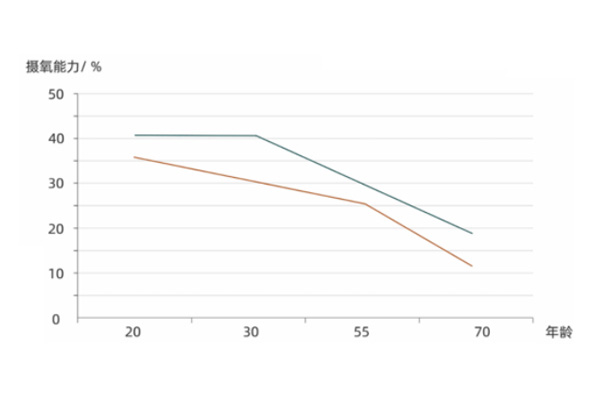
[1]Biddlestone, J., D. Bandarra, and S. Rocha, The role of hypoxia in inflammatory disease (review). Int J Mol Med, 2015.35(4): p.859-69.
Hypoxia is the root of all diseases

Cerebral hypoxia
The oxygen consumption of the brain accounts for more than 20% of the human body, and cerebral hypoxia can lead to headache, fatigue, insomnia, forgetfulness, poor judgment, and even brain atrophy.
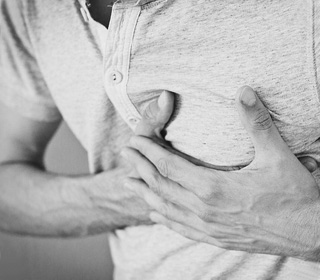
cardiac hypoxia
Cardiac hypoxia can cause chest tightness, suffocation, palpitation, shortness of breath, arrhythmia, rapid heart rate, angina pectoris, lassitude and fatigue, resulting in heart failure.
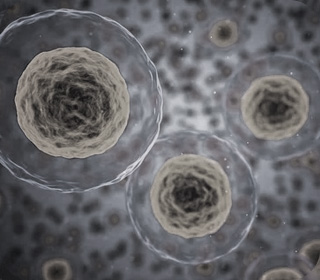
Cellular hypoxia
Create an imbalance of sodium and potassium, leading to mineral precipitation. Then, cause arthritis, cataract, arteriosclerosis, muscle contracture and other diseases.
Micro-hyperbaric oxygen therapy——increase the partial pressure and concentration of oxygen in the body
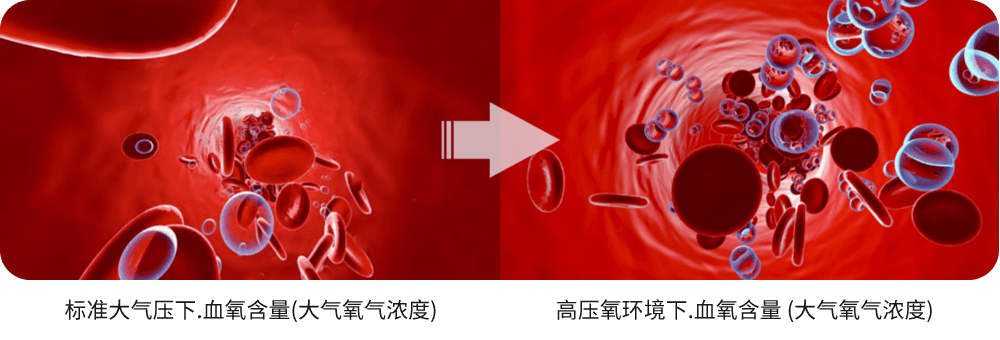
Increase the partial pressure of oxygen in blood and increase the vascular transport and terminal reach of oxygen.
Principle of micro-hyperbaric oxygen chamber

Increase the partial pressure of oxygen in the body
Increase the partial pressure of oxygen in the body, the hyperbaric chamber can increase pressure to 1,300hPa

Increase oxygen saturation
Oxygen intake is more than twice as much as normal breathing

Increase the oxygen diffusion distance in the body
Promote blood flow with the flow of the lymph

The flow of blood vessels in human body under general atmospheric pressure, and various factors hinder the flow.

The hyperbaric oxygen chamber accelerates the blood vessel circulation of human body and promotes the blood flow
Anti-senility test results of micro-hyperbaric oxygen chamber
In 2019, 35 elderly people were tested for 90 consecutive days of micro-hyperbaric oxygen therapyat the Israel Shamir Medical Center, and the final sample average results were:
20%Cell telomere elongation
35personsNumber of experimenters
37%Senile cell decreased
≥64years oldSample age
25years Young cells
35times Number of treatments
Be assured to choose micro-hyperbaric oxygen chamber
Micro-hyperbaric oxygen therapy belongs to the field of health care and is a relatively safe measure with lower pressure and higher safety.It is suitable for the elderly, patients with chronic diseases, people who love beauty, sub-healthy people, athletes, obese people, postoperative convalescents, etc. 。
The hyperbaric oxygen chamber equipment is commonly used in various scenes such as sanatorium, rehabilitation center, family physiotherapy, medical and aesthetic institution, gymnasium, high-end hotel, care center, community care, gymnasium, high-end club, plateau area, etc.
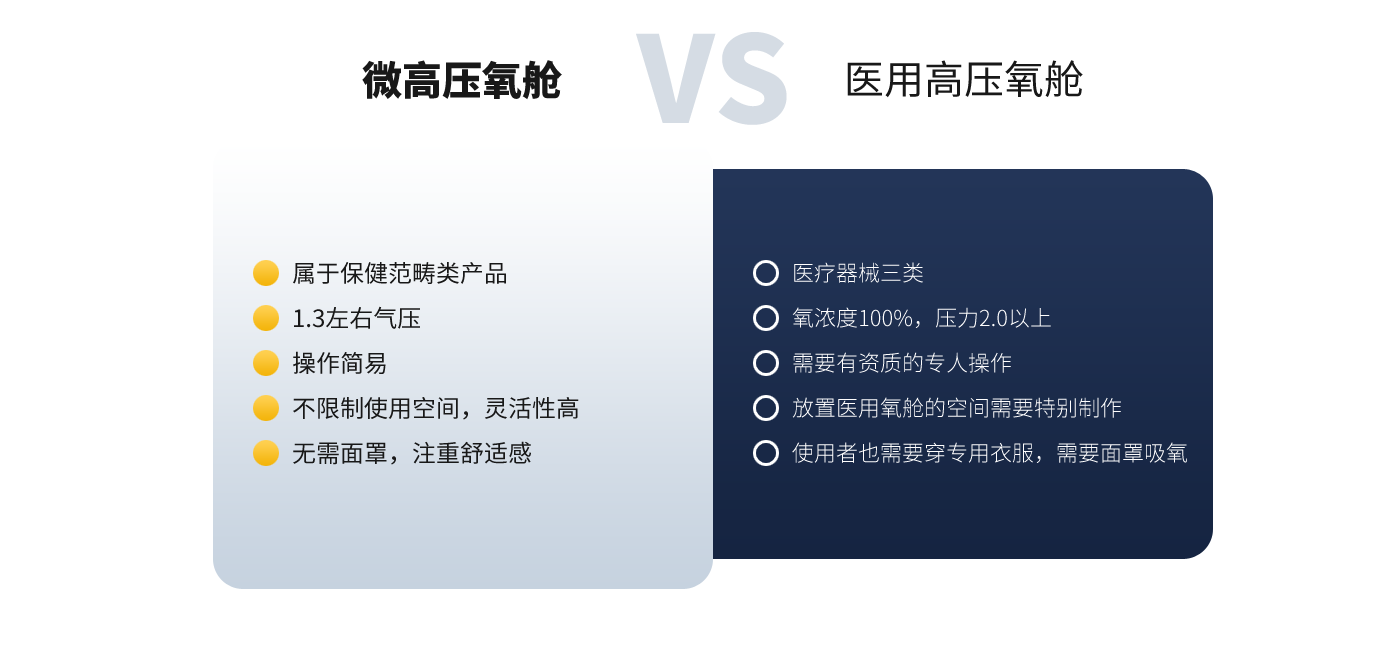
Product functions
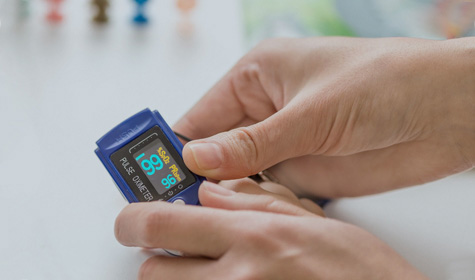
Daily oxygen care
Quickly increase the content of combined oxygen and dissolved oxygen, accelerate blood flow, repair cells, and help metabolism and organism balance.

Improve sub-health
Under the condition that the blood flow is blocked, rapidly increase the blood oxygen content through the hyperbaric oxygen therapy, improve the utilization rate of the organism on oxygen, and optimize the body function, improve that sub-health state such as poor metabolism, exhaustion of heart and brain and slow blood flow.

Post-exercise recovery
· Reduce inflammation in muscle contusions and accelerate myogenesis;
· Relieve post-exercise fatigue and help restore the normal oxidative metabolism of the hypoxia site;
· Promote the recovery of serum enzymes and liver enzymes, and accelerate the elimination of harmful metabolites.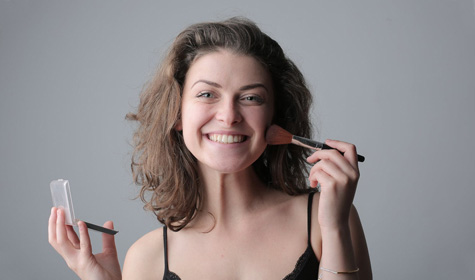
Anti-aging
Long-term high-pressure oxygen inhalation can improve cell vitality, optimize body function, quickly recover physical performance, effectively prolong telomere and reduce senescent cells. Help improve skin metabolism, accelerate metabolite clearance and cell regeneration.
The above contents are taken from popular science literature on micro-hyperbaric oxygen therapy, which are only for reference of consumers. The product is not a medical device and is not used for medical purposes, and its actual efficacy varies from person to person.
Effect of hyperbaric oxygen therapy on sports injury
Inhibit inflammatory response and promote cell proliferative status
Promote muscle cell and capillary regeneration
Improve blood flow perfusion and accelerated repair of tissue
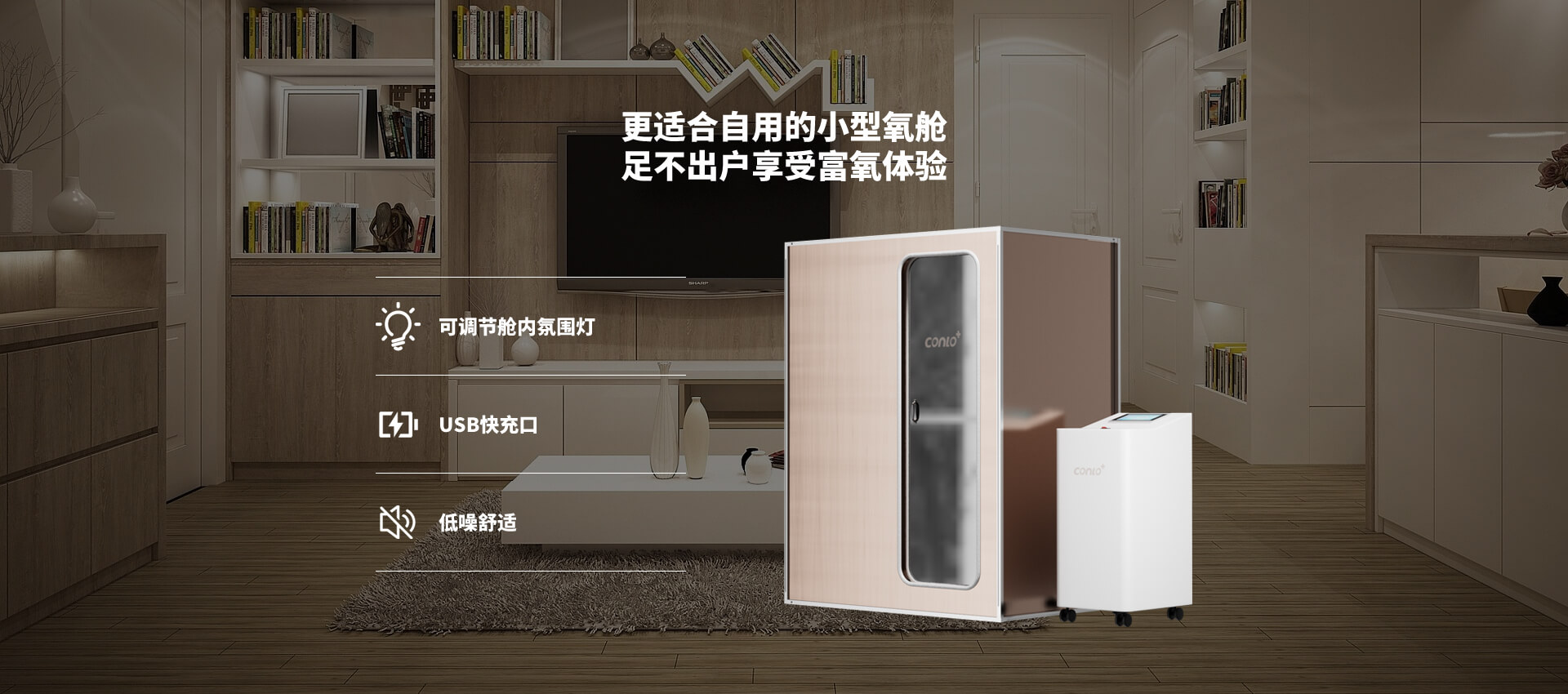
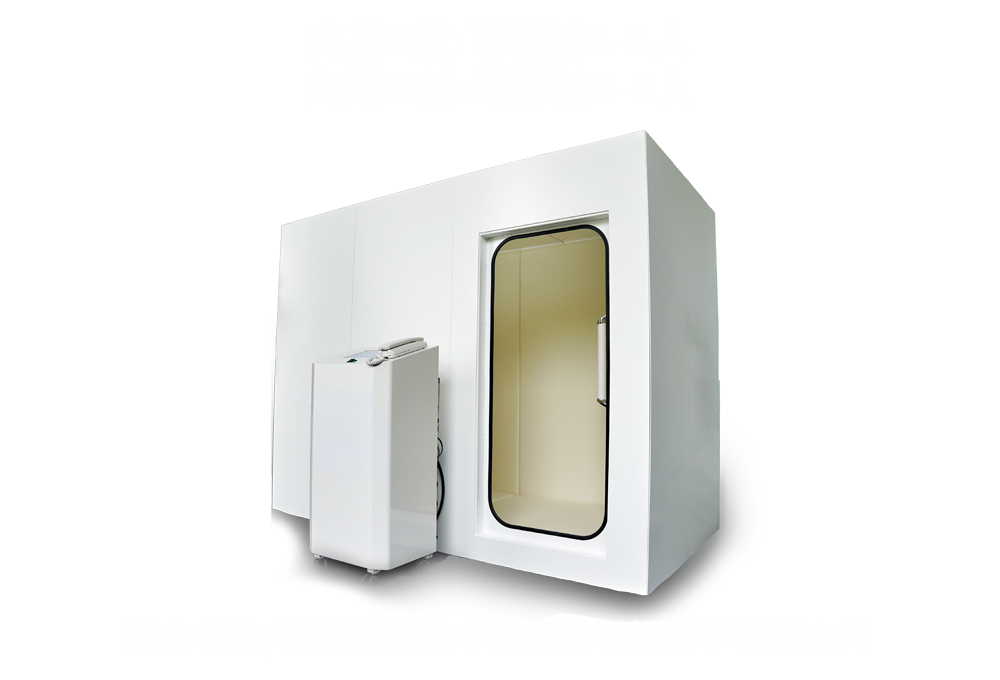
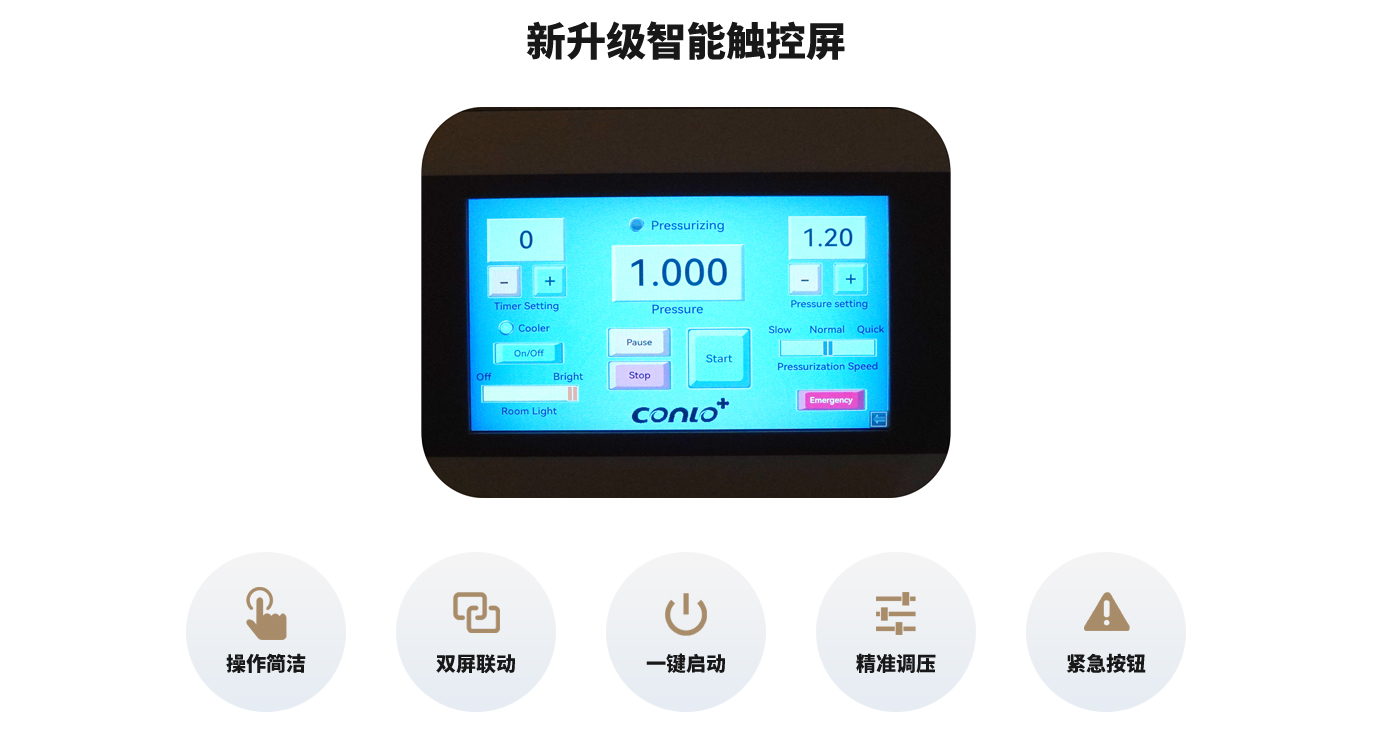
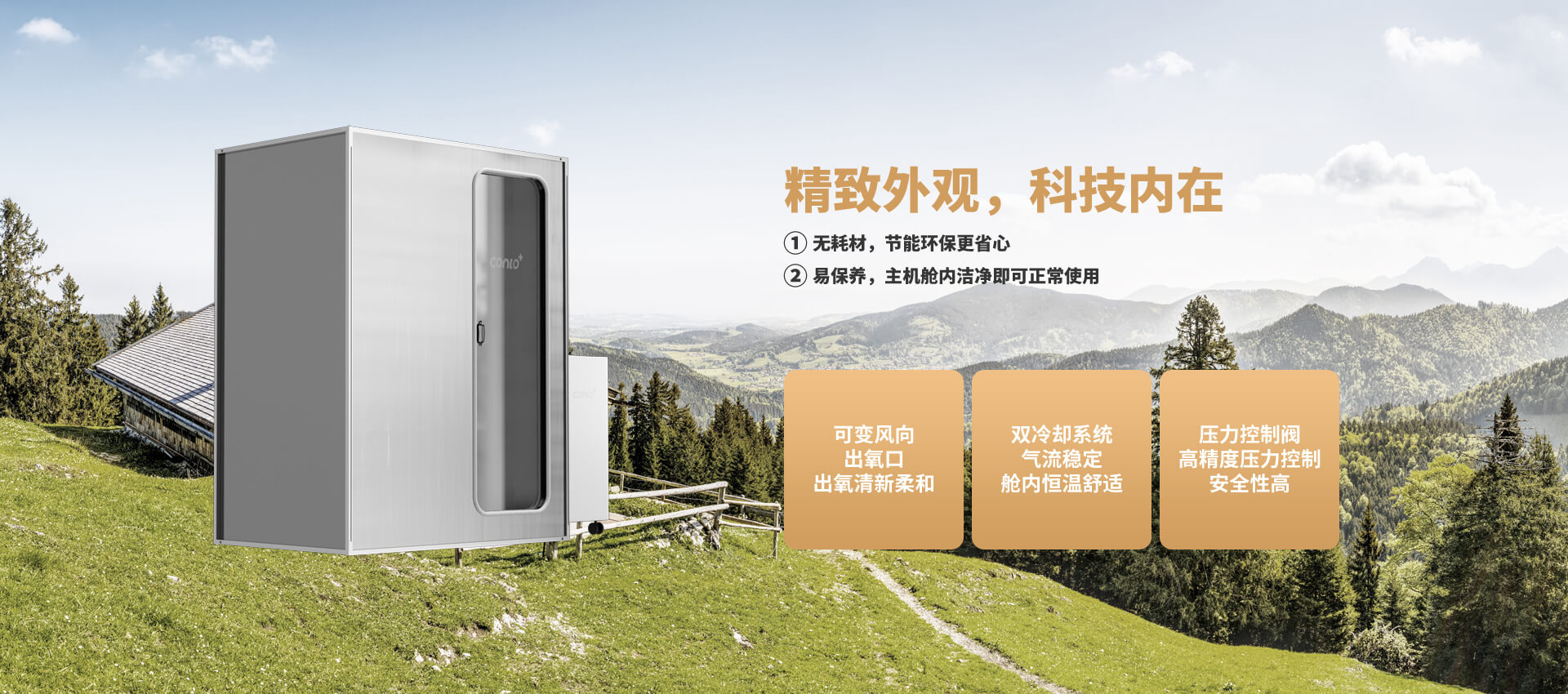
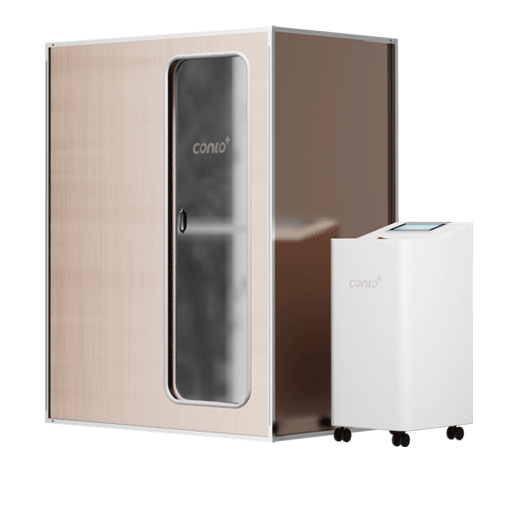
Polished gold
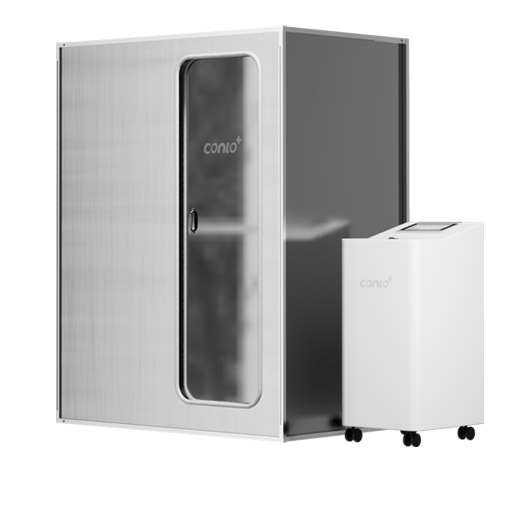
Glacier silver
| Overall dimensions of the body | Width Depth Height 125 x 90 x 164cm |
| Indoor dimensions | Width Depth Height 110 x 75 x 150 cm |
| Input voltage | 350kg |
| Total weight | Width Depth Height 35 x 30 x 80cm |
| Dimensions of operation table | 30kg |
| Pressure setting | 1.2/1.25/1.3 atmospheric pressure: |
| Speed setting for compression and decompression | 0→1.3 atmospheric pressure: fast 8 minutes, medium 10 minutes, slow 15 minutes |
| Time setting | 5 minutes to 420 minutes |
| Air flow rate | 80L/min |
| Oxygen concentration | When atmospheric pressure is 27.3% at 1.3 |
| Power Supply | 220V 50Hz |
| Power | S-cabin |
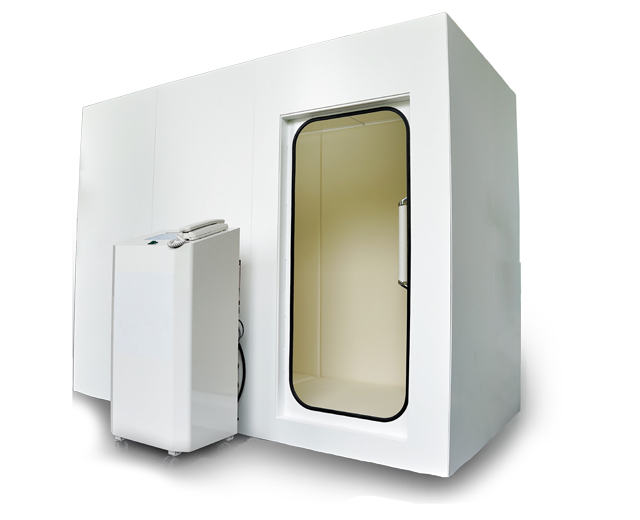
S-cabin
| Overall dimensions of the body | Width Depth Height 106 x 210 x 181 cm |
| Indoor dimensions | Width Depth Height 94 x 199 x 169 cm |
| Input voltage | 670kg |
| Total weight | Width Depth Height 35 x 30 x 80 cm |
| Dimensions of operation table | 30kg |
| Pressure setting | 1.2/1.25/1.3 atmospheric pressure: |
| Speed setting for compression and decompression | 0→1.3 atmospheric pressure: fast 8 minutes, medium 13 minutes, slow 18 minutes |
| Time setting | 5 minutes to 420 minutes |
| Air flow rate | 160L/min |
| Oxygen concentration | When atmospheric pressure is 27.3% at 1.3 |
| Power Supply | 220V 50Hz |
| Power consumption | 850W body: 400W/refrigerator: 500W |
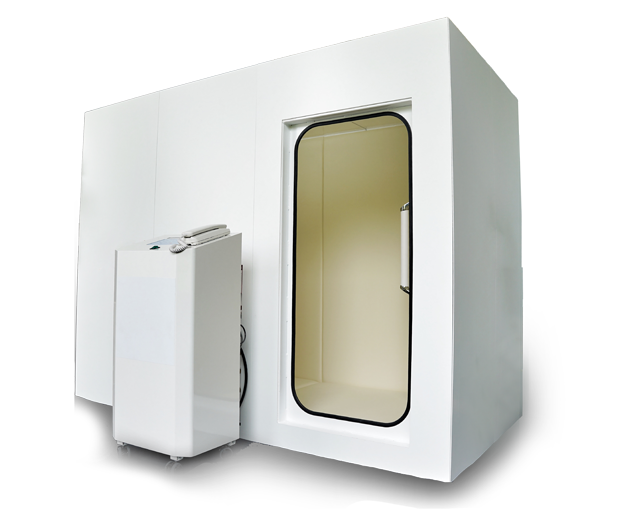
M-cabin
| Overall dimensions of the body | Width Depth Height 152 x 210 x 181 cm |
| Indoor dimensions | Width Depth Height 140 x 198 x 170 cm |
| Input voltage | 900kg |
| Total weight | Width Depth Height 35 x 30 x 80 cm |
| Dimensions of operation table | 30kg |
| Pressure setting | 1.2/1.25/1.3 atmospheric pressure: |
| Speed setting for compression and decompression | 0→1.3 atmospheric pressure: fast 8 minutes, medium 13 minutes, slow 18 minutes |
| Time setting | 5 minutes to 420 minutes |
| Air flow rate | 160L/min |
| Oxygen concentration | When atmospheric pressure is 27.3% at 1.3 |
| Power Supply | 220V 50Hz |
| Power consumption | 850W |





